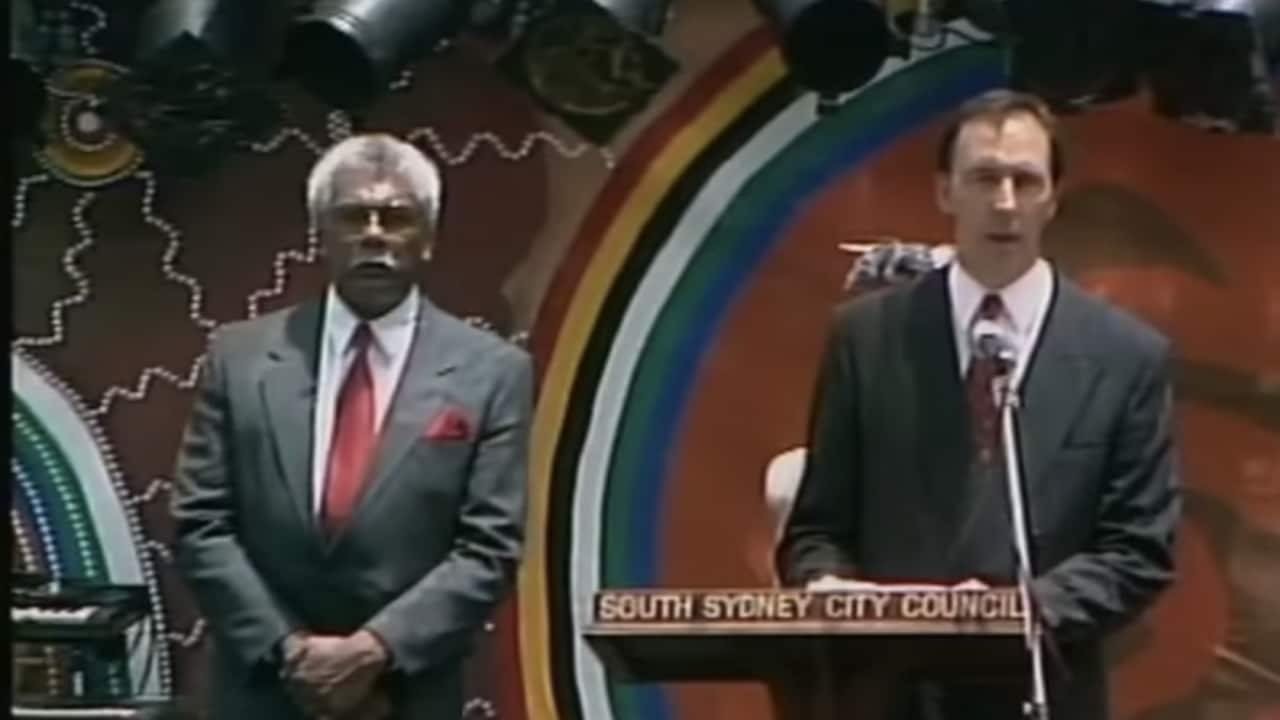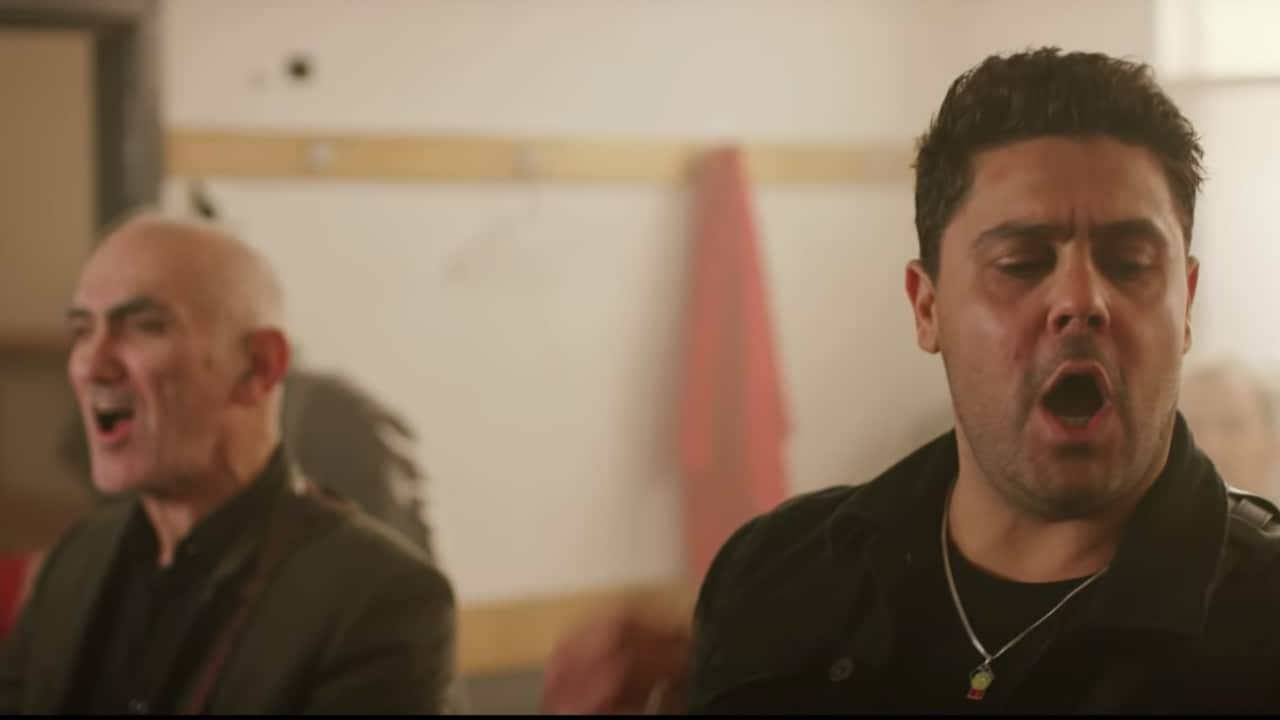If you're party-planning for the end of the election campaign, Saturday 18 May, you might consider this new track as companion to Briggs' political "" for your savvy playlist.
Australian music legend Paul Mac has recently released the Redfern Address (In Memory of Vision) in honour of who he calls, "my political hero". On his album Mesmerism, Mac told NITV the song was created to remind us all "of a time when a Prime Minister was up for trying something nation-changing."
The creative approach was to"emphasise Keating’s powerful words and intentions" back in 1992, when the former Prime Minister spoke the truth to a nation that was mostly deaf to the voices of First Australians.
Included in the track, sections of Keating's unforgettable oration:
"It begins, I think, with that act of recognition.
"Recognition that it was we who did the dispossessing.
"We took the traditional lands and smashed the traditional way of life.
"We brought the diseases. The alcohol.
"We committed the murders.
"We took the children from their mothers.
"We practised discrimination and exclusion.
"It was our ignorance and our prejudice.
"And our failure to imagine these things being done to us.
"With some noble exceptions, we failed to make the most basic human response and enter into their hearts and minds. We failed to ask - how would I feel if this were done to me?"
Now these words, spoken on a hot December day in the park at Redfern to launch the 1993 International Year of the World's Indigenous People, can be contemplated in the hypnotic state the artist Paul Mac intended with this new album, Mesmerism.
NITV spoke to Mac to understand more deeply, why and how, this came to be?
Firstly we asked what we always need to know, up front:
Are you Aboriginal &/or Torres Strait Islander?
No, just an ally.
Where is your mob from? What is your cultural heritage?
Dad was Irish, mum English/Irish descent. Why did you create this track?
Why did you create this track?

Source: Supplied
For this album, I wanted to do something completely different.
All of the other tracks on the Mesmerism album are instrumental.
What was your intention?
I wanted to do a spoken word track and I was thinking to myself, what is the most important speech that has happened in Australian politics? And for me, the Redfern Speech is definitely the most important speech for so many reasons.
Keating, for the first time ever for a Prime Minister, addresses the direct effects of colonisation. That was so huge, for a Prime Minister to come out and say that. You can hear the audiences’ reaction in the speech.
When he says, “we stole the children” and takes responsibility for that, the crowd goes wild.
It was a big deal.
I added "(In Memory of Vision)" to the title because looking at the current election dialogue, we have a complete absence of bigger-picture issues. It’s all franking credits and hip-pocket 'let’s win the next election' promises. Paul Keating reminds me of a time when a Prime Minister was up for trying something nation-changing. It’s kinda like a eulogy to those times.
What are your hopes for the track?
By using this speech I can at least try to put these ideas back into the conversation. I don’t have the answers but if it can just remind us all that this happened, I hope it can inspire people to start talking about steps to move forward.
Changing the date and treaty are all steps in the right direction to move forward as a nation that have to be dealt with sooner or later.
What level of involvement has Paul Keating had on the track? Does he endorse this?
I did the track and sent it to him to gain his blessing. These are his words and his legacy and I don’t take that responsibility lightly.
I was so nervous waiting for his blessing to go ahead and use it. I had to wait a month or two and thought he might say "no".
I heard back that he liked it and thought it was “haunting”.
He gave me his blessing to go ahead. That was better than winning an ARIA for me! I wish it was a paper-letter, not an email. I would have framed it.
*Editors Note; Paul Mac won an ARIA in 2002 'Best Dance Release' for 3000 Feet High, tracks included on this album "" and "The Sound of Breaking Up".
What is your opinion of Paul Keating?
He is my political hero, I’d hate to do anything to disrespect him or tarnish his legacy.
I miss his wit, wisdom and vision.
Would you generally describe your music as political?
Not usually, I’ve never really done anything like this before. I think when I started working with Bangarra in 2014 my eyes began to open to discussions of resilience, survival and rekindling language through story-telling. This year I was lucky enough to do the music for Nakkiah Lui’s play (with Steve Francis) “How to Rule the World”.
In that, I listened to her argument for treaty and once again opened my ears and mind to that idea.
What do you think of current politicians?
I get depressed that social media has reduced the level of debate and it’s all very short-sighted and greedy without any bigger-picture nation building or growing. Hopefully, the track points us back to a time when it wasn’t always like this.
Will you create more work, with a social justice angle?
I’d love to continue working with Indigenous artists. It feels like I can help and get involved using my music skills that way.
Do you think Australia is changing, becoming more thoughtful about race relations?
It feels like it’s always 2 steps forward, 1 step back most of the time. On the one hand, you see the majority of youth voting to change the date of Triple J’s Hottest 100, but then we also have Hanson, or read the horrible comments that my Indigenous women friends have to endure on social media.
Ugh! Frustrating times indeed.
Has Australia moved beyond Keating's assessment: our failure to imagine these things being done to us.
My hope is with the kids coming through. They have been educated way better to ideas of equality, fairness and social justice.
I can’t wait til the current crop get to voting age then, hopefully, we will start to see some change.
Are you attempting with this track, to do as Keating said: we non-Indigenous Australians should try to imagine the Aboriginal view.
Absolutely.
The parts of the speech that I used were addressed at whites/settlers as a kind of inspiration and acknowledgement that we have to do something to address this.
I don’t mean to speak on behalf of anybody else, particularly Indigenous folk. I wanted to focus the ideas that white people, including me, need to think about this and work out what we can do to address it.
Related Reading

Briggs skewers white privilege in ‘Life is Incredible’










